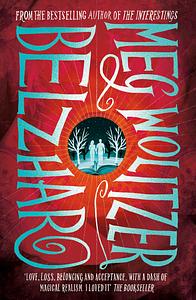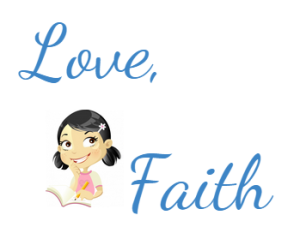You need to sign in or sign up before continuing.
Take a photo of a barcode or cover
Initially I rolled my eyes at the fantastical element, but as I read the book a second time in two days, I saw the effective metaphor it is. This is a smart YA book that assumes teenagers are emotionally mature and dealing with big issues, like grief in its many forms. If your niece is into the Smiths, she will love this.
Review originally posted on my blog here
My Rating
This is one of those books which left me speechless and awed. I really don't know what to say about this book without spoiling it. If you've read this book then you understand what I mean. But I will remain as spoiler-free as I can. I'll probably drop hints here and there but other than that you are safe and sound.

This book is very insightful on what it means to be in mourning and in grief. This books pretty much breaks the stigma that mourning and grief means death. All the characters in the book which are in Special Topics in English are all named "fragile" but all of them are mourning over something different. Some of them are seemingly insignificant but to each of them, it has changed them. I found that this book had a lot of concepts that were similar to Dead Poet's Society and I didn't mind that at all. A life-changing English lesson with a blunt teacher was what this small bunch of students needed. And with that they were able to grow closer together and learn how to confess their struggles and with that, also accept it.
I loved the whole idea that every time they wrote in their notebooks, it transported them into a world (Belzhar) that what they had lost still existed and that everything was all right, again for them. There's another stigma that to overcome grief you have to forget about it and move on. Instead, this book thrusted these kids into remembering what they had lost but instead of breaking them, it raised them. In Belzhar, everything was as it was except there was a catch that you couldn't do anything that you hadn't done with that lost thing before. To them, it was fine but these two weekly visits, allowed them to move on and see what they still had in reality.
The characters in the book were very substantial, you could relate to them and you could understand everything they were undergoing. The writing was honest, there was no beating about the bush and I loved how this book let you assume one thing then after going through this whole 250 page journey, it dropped a bombshell. It's a very surprising and enjoyable read and I recommend this book to anyone who is a fan of Dead Poet's Society and the Breakfast Club.

I was really interested in reading Belzhar the minute I found out it was loosely based on The Bell Jar by Sylvia Plath. Like many avid readers, Sylvia Plath was a very important poet and writer to me growing up, ever since my ninth grade English teacher recommended her to me when I was struggling to find a poet I connected with for a poetry project. Since then, Sylvia Plath’s poetry, with its rawness and bare open exposure of pain and the struggle of finding one’s identity (especially as a female) resonated with me deeply in a way that no other poet’s work ever could. So when Belzhar came along, I was entranced with the idea that Plath’s work would find its way among YA literature.
Unfortunately, Belzhar turned out to be a parody of the brilliance and darkness of Sylvia Plath’s work in many ways. While the plot was intriguing enough to keep me reading to the end and the writing style wasn’t necessarily bad, by the end of the novel had me thoroughly disappointed in the use of Plath as inspiration, and the lack of depth in the characters.
Where Belzhar Excelled:
It’s always my policy in my reviews to give credit where credit’s due, and there were elements in Belzhar that kept my attention. The Wooden Barn, the school for emotionally fragile and highly intellectual teens that Jam ends up attending, was an interesting setting, and I immediately adored the Special Topics in English class with their no-nonsense teacher who refuses to coddle them because of their backgrounds. Mrs. Quenell is the type of teacher who’s class can change a student’s life (even without the magical realism aspect…and do note that while this may be billed firstly as a contemporary, there is a heavy layer of magical realism/fantasy. Had I not known this going in I may have been even more frustrated with the book). Mrs. Quenell really drives home that books can change a student’s life and help them uncover more about themselves, and reminded me of the personal importance so many discussions I had with classmates and professors impacted me. There’s also a really neat twist with Mrs. Quenell’s background toward the end, although for the most part she remains an enigma, which was disappointing as the beginning of the novel built up her character so much. Mrs. Q really drives home an important point: words matter, even in a world where technology rules and S.T.E.M. fields are being pushed over the liberal arts.
Belzhar also kept me hooked as I wanted to know the back stories of why Jam’s classmates ended up at the special school. I appreciated the range of stories, from tragic abductions to the implosion of families, that caused realistic emotional trauma for Jam’s classmates, and how they all struggled to overcome them, and quite frankly wished I could have spent more time with them rather than the protagonist herself.
Where Belzhar Disappointed:
Belzhar didn’t incorporate Sylvia Plath nearly as much as I had hoped. There are only a handful of instances where it shows the characters interacting with her poetry in class, and most of time I had hoped would show the Special Topics in English class sessions was substituted with the students obsessions with their journals (which you’ll find out about if you read the novel…I don’t want to spoil anything).
My main problems with this novel were not with the plot or the setting or even the characters, but mainly with the protagonist, Jam. She is dealing with the loss of Reeve, her boyfriend she knew for 41 days before the loss (an excessively short time, I know). Now I don’t want to undermine Jam’s loss, because I know how devastating love and loss can be at the age of fifteen, when you’re still trying to figure out who you are and where you fit in the shark tank of high school and how much your own identity can and should mesh with someone else. So on the one hand I don’t want to completely condemn Jam for her depression…but on the other hand I just wanted to grab her, shake her shoulders and be like “You only knew this kid for 41 days.” 41 days and she’s fallen into a practically comatose state, unable to resurface from her grieving, severing all of her previously existing relationships, emotionally abandoning her family. It’s all a bit too extreme.
Jam is one of those protagonist who always has to be defined by her relationship with a male. I know both other book characters and people in real life like this, and while it doesn’t make them bad people, Jam’s inability to exist (and at such a young age, too) without a relationship is over the top, and I don’t like the message it sends to readers. Here are a few examples:
“Without Reeve, I’m hardly even a person.” -pg 51
“He was the only one I wanted to talk to, so I made my way through the crowd until a British accent drifted out, and I was like a dog who snaps to attention at its master’s voice.” -pg 42
These quotes describe a character with such a lack of agency it made me cringe. Especially when she compares herself to a dog. It’s all so dangerously self-deprecating, all in the name of “love.” Jam clearly allows Reeve (or at least her perception of him) to claim total ownership over her. What kind of message is that sending? And maybe I could have forgiven this had she become a more independent person by the end of the novel, but (minor spoiler) there’s a half-baked romance with one of the other students that serves to finally distract her from Reeve…not a friendship, not a hobby, but yet another boy.
There’s also a huge plot twist at the end of the book, that’s really shocking if you don’t happen to guess it in advance, which I did about 25% into the novel. And when I did, boy did it enrage me.
Spoiler
Jam’s “trauma” over Reeve ends up being so inconsequential compared to her classmates with actual tragedies and post-traumatic stress disorder, almost laughably so, as she’s constructed a revisionist history inside her own head to make herself look like a martyr and has essentially existed in a fugue state for the past year over pretty standard teenage drama. To categorize her as mentally ill (which she arguably may be for the “stories” she tells and convinces herself of) and then for her to be “cured” so quickly (and largely due to starting to date another boy) is rather insulting to the entire concept of mental illness and the actual obstacles and long, committed road to recovery individuals with emotional trauma must actually face (everything gets wrapped up rather nicely and conveniently at the end of the novel, which also feels unauthentic). The boarding school setting of the book may have been intriguing, but the caricature of it being basically an institution for those suffering from PTSD from actual traumatic events was rather insulting in how simplistic and shallow it was constructed.Overall: Belzhar wasn’t a bad book in terms of writing- in fact, I wouldn’t mind trying another one of Meg Wolitzer’s books to see if it resonates better with me. However, there were a multitude of problematic plot elements from a protagonist who cannot define herself without a male to a cursory and shallow portrayal of mental illness that undermines the real experiences of those who suffer emotional trauma. If you don’t guess it beforehand, the book does offer some exciting (though potentially anger-inducing) twists regarding the group of troubled teens that may captivate fans in the same vein as We Were Liars. I applaud Belzhar for drawing upon Sylvia Plath, but ultimately the book falls short of the large expectations derived from taking inspiration from such a prolific poet.
This review was originally posted at Girl in the Pages









